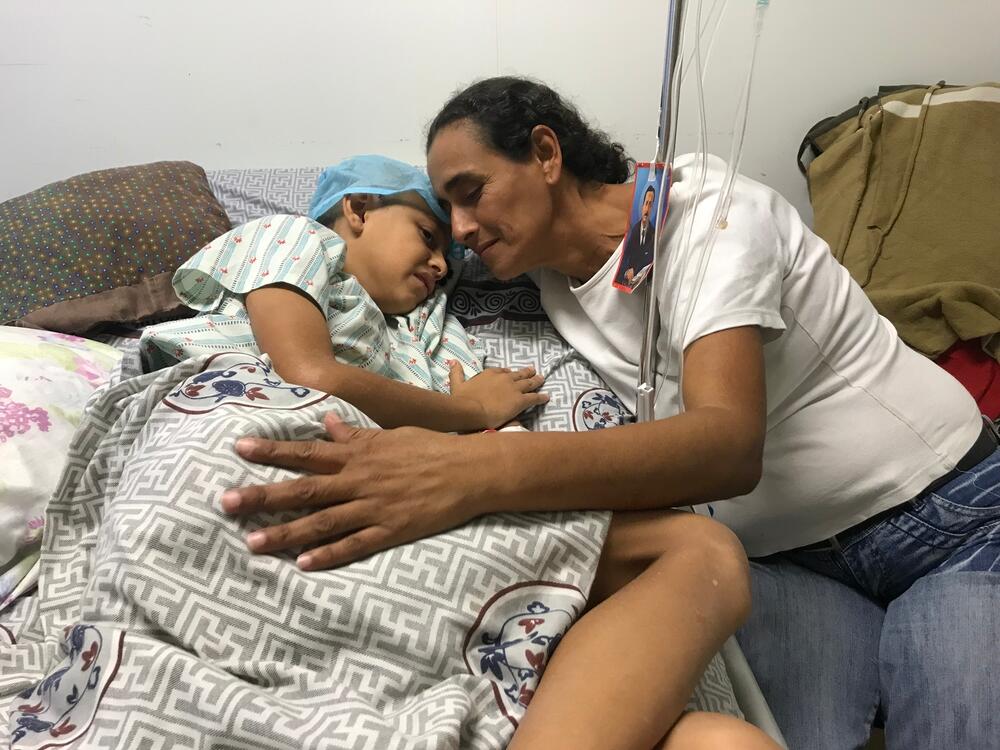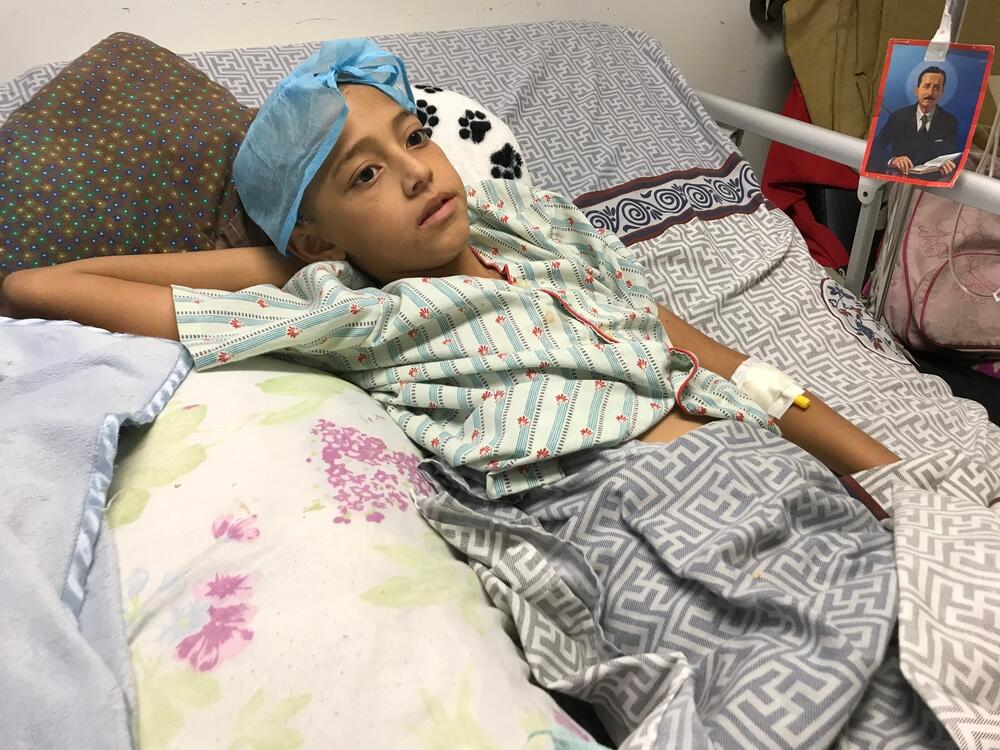Roiber’s recovery: How our teams are helping to save lives in Venezuela
When an 11-year-old boy is shot in the head in the Venezuelan city of Caracas, it’s a race for medical teams to save his life. But with the country in crisis, will they have the tools they need? MSF’s head of communications in Venezuela, Yotibel Moreno, shares the story.
Roiber is 11 years old. He lives with his mother and sister in Los Valles del Tuy, in Miranda state, Venezuela. He is in the sixth grade and is very good at maths.
Roiber has been playing football for a year and tells me he likes it, but his real passion is karate. He has already earned his brown belt.
His mother Karina Flores is a housewife; she takes the children to school and, when she can, she cleans houses to earn some cash.
Roiber’s father Richard lives in Ciudad Caribia in La Guaira state, near the capital Caracas, and manages a motorcycle taxi service.
On 18 January 2020, while visiting his father for the weekend, Roiber was shot in the head.
The shooting
It all started with an argument between two men.
When Roiber heard gunshots, he ran to see what was happening and was struck in the head by a stray bullet. He collapsed.
His father took him by motorcycle to Vargas Hospital in Caracas, which MSF has been supporting since June 2019.
Hospital staff said when Roiber arrived at the hospital, things did not look good and he was in a critical condition.
The race to save Roiber
Roiber reached the hospital emergency room at 7.40 am.
He was quickly operated on by a neurosurgeon, with support from an anaesthesiologist and ventilatory support equipment.
After his operation, Roiber was taken to the intensive care unit with invasive ventilatory support, where he was given drugs that kept him sedated to allow him to recover.
MSF is working across Venezuela, wherever the need is greatest. We believe that good hospitals and public health centres are key to saving lives.
“The mechanical ventilator is indispensable to help the patient to breathe while they are sedated and their brain is at rest,” Dr Argenis Portillo, Chief of Intensive Care and Assistant Director of the hospital, tells me.
“That, along with the correct drugs, are vital. Without these, the picture would have been very serious, a poor prognosis, because a brain that cannot rest does not recover and possibly the patient dies.
“Those are the critical hours after an operation of that complexity.”
A health system in crisis
Located in the Libertador Municipality, Vargas was once one of Venezuela’s leading hospitals, with more than 128 years of medical service.
But as millions of Venezuelans flee the violence and insecurity caused by the political, social and economic crisis gripping the country, Vargas Hospital has faced shortages of staff, medical supplies, and even water.
Since June 2019, our teams have been working to improve critical emergency areas at the hospital, providing technical advice and logistical support, and donating medicines and equipment.
On 16 January, MSF returned nine repaired mechanical ventilators to the hospital, which allowed for increased capacity in the intensive care unit.
Two days later, Roiber was shot in the head and rushed to the emergency room.

Help us prepare for the next emergency
Karina
When the hospital called Karina with the news her son was injured, the insecurity in the area and the lack of transportation since the crisis meant she couldn’t get to him immediately.
She had to wait in Charallave, 45 minutes from Caracas, for somebody to give her a lift, knowing that her son had been gravely injured.
After 48 hours of total sedation following the operation, Roiber was removed from mechanical ventilation and, progressively, weaned off the medication.
He woke up breathing on his own, helped with an oxygen mask, without complications. The team kept him under neurological surveillance for 72 hours after which he was moved to the general paediatrics ward.
A few days after her son's operation, Karina is sitting in the hospital courtyard, waiting for more news.
“Today I saw him, and he opened his eyes and moved his hand. But it is a slow process,” she tells me.
Karina has also received support through MSF’s SALVA project, which provides medical and psychological care for survivors of traumatic events.
Roiber’s recovery
Roiber's recovery has been impressive.
On 26 January, eight days after the shooting, he was able to speak, move his body and touch his head. He was able to pronounce his name and recognised the doctor who had “cured his head”.
Three weeks after starting physiotherapy, while still under neurological observation, Roiber turned 12. He was discharged from the hospital on 15 February.
“MSF is working across Venezuela, wherever the needs are greatest. We believe that good hospitals and public health centres are key to saving lives,” explains Isaac Alcalde, MSF general coordinator in Caracas.
“The case of Roiber is just one example of this and of the need for greater international aid for the Venezuelan public health sector.”
MSF in Venezuela
In Venezuela, we provide mental healthcare to victims of urban violence in the capital, Caracas, and the country’s second largest city, Maracaibo.
Our teams in Caracas started providing services in two of the city’s most dangerous neighbourhoods, Petare and La Vega, in mid-2016. We now operate from one of the main public hospitals in the city and receive referrals from the surrounding region.
Our psychologists provide individual mental health consultations, and during these sessions, they often detect and address cases of sexual violence.
We advocate considering sexual violence a medical emergency and treating it in a comprehensive way, which combines medical and psychological care.
MSF first worked in Venezuela in 2015.

